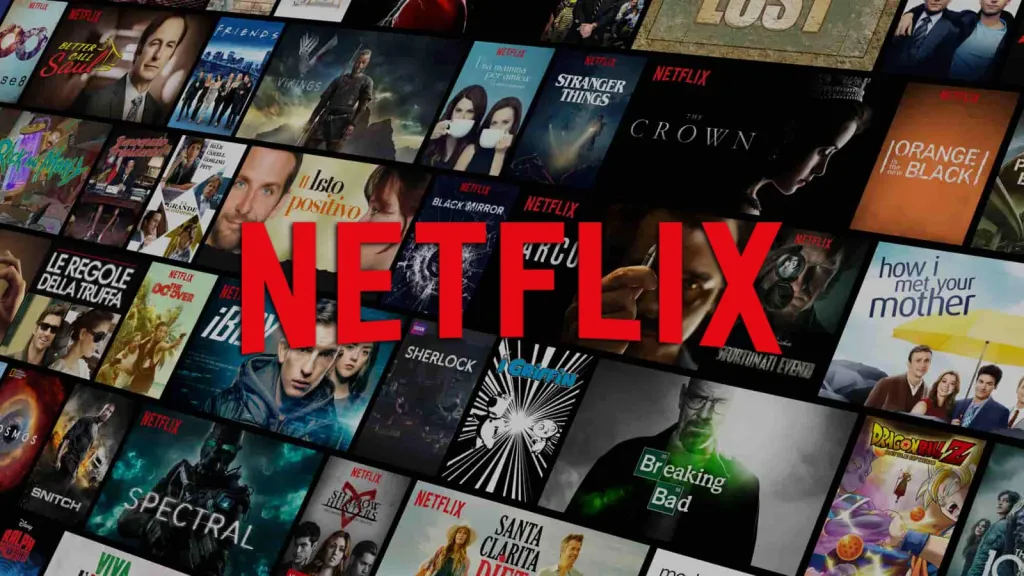Did you know Netflix has shown less than 1% of faith-based films in recent years? This fact highlights a worrying trend: Netflix is removing Christian movies. As a top entertainment service, Netflix is changing its content strategy. This change reflects shifts in what viewers want and how diverse content is handled. But why is Netflix pulling back on faith-based films? And what does this mean for the Christian film industry? We’ll look into Netflix’s reasons and see how it affects both the platform and its viewers.
Overview of Netflix’s Content Strategy Shift
Netflix has changed a lot since it started. It went from a DVD rental service to a top streaming platform. These changes are thanks to its evolving content strategies. These strategies aim for inclusivity and diversification, making its media library diverse.
Adding different genres, like religious content, helped attract a wide audience. But Netflix has been changing what it offers lately.
Historical Context of Netflix’s Content
At first, Netflix was all about renting DVDs. These DVDs covered many genres to meet different tastes. As streaming tech got better, Netflix grew its library to include movies and series for a global audience.
This growth meant adding many genres, including religious content for faith-based communities.
Recent Changes in Netflix’s Catalog
Netflix has been tweaking its content library to catch the eye of its users. Cutting down on Christian titles has led to talks about its new focus. This change is part of a bigger plan to match what viewers want, focusing on netflix diversity and inclusion in media. It shows how streaming services update their content to fit market trends.
Netflix is adjusting to stay competitive in the streaming world. Whether these changes will win over viewers or cause upset is still up in the air.
Industry Trends and Market Demand
It’s key to understand how the streaming industry changes to see Netflix’s strategy. As things keep evolving, platforms must keep up with what viewers want and global trends.
Evolution of Streaming Preferences
Streaming preferences have changed a lot, leaning towards diverse and varied content. With more choices available, viewers want quality and unique content. This change affects how Netflix picks its movies, especially faith-based films.
Impact of Global Market Trends
Global trends are important for Netflix’s content choices. As Netflix reaches more people, it needs to offer something for everyone. This means paying attention to different tastes and cultures. It also means Netflix focuses on certain genres, like Christian content, based on what people want worldwide.
Changing Viewer Demographics
Netflix needs to adjust its content because the number of people who watch movies is changing. Younger people watch differently than older ones, who might want more classic movies. Netflix aims to please everyone, which might mean fewer faith-based films for some viewers.
Why is Netflix Removing Christian Movies?
Netflix has been in the news for taking some religious films off its platform, especially Christian movies. There are a few reasons for this. One big reason is the content performance metrics. Netflix checks how well its movies and shows do with viewers. If a Christian movie isn’t doing well, it might be removed to make space for more popular stuff.
Another reason is Netflix wants to reach more people around the world. They aim to be inclusive and attract a global audience. This means they might choose to show less religious content to make their library more diverse.
There’s also a Netflix content removal policy at play. Netflix regularly updates its selection to fit with new goals or policies. If they’re cutting back on religious movies, it’s likely part of a bigger plan, not because they’re censoring anything.

Some people think netflix removing religious movies is a strategic move. The platform might want to keep a certain image and focus on content that fits their current goals. This could mean cutting back on niche content to improve the viewing experience for everyone.
Content Licensing and Financial Considerations
Netflix’s success depends a lot on its financial side. It looks at the cost of getting content and how it makes money. This includes the cost of buying shows and movies and how it uses different models to stay profitable.

Cost of Content Acquisition
Netflix decides what shows to keep or drop based on how much it costs to get them. Getting rights to popular shows or unique content means big negotiations and big payments. For example, Netflix pays billions for streaming rights from big studios.
The more sought-after the content, the more it costs. So, the cost of getting shows is key in picking what’s available.
Revenue Models and Profitability
Netflix uses various ways to earn money to cover its costs and profit. It mainly earns money from subscription fees, offering different levels of access. It’s also considering adding ad-supported plans to increase its revenue.
These models help balance out the high costs of getting content. As Netflix keeps investing in more types of shows, including ones from around the world and original ones, it always checks how profitable it is. This helps it keep growing.
Backlash and Public Opinion
Netflix’s removal of Christian movies has caused a big stir among consumers, leading to a heated debate about the Netflix Christian content controversy.
Response from Faith-Based Communities
Many faith-based communities have spoken out strongly. Christians on social media expressed their unhappiness, feeling left out and let down. They are a key part of Netflix’s audience, showing how crucial it is to offer content for different beliefs and values.
Also, faith-based groups have criticized Netflix’s choice, asking them to think again. The reaction from consumers has deeply affected these communities. It shows how big the impact of changing content can be.
Impact on Netflix’s Brand Image
The backlash from the Netflix Christian content controversy has hit its brand hard. Negative feelings from loyal viewers could hurt Netflix’s reputation, especially for those who value faith in their shows. The ongoing debate has made people think about the balance between choosing content and keeping viewers happy.
The ongoing reaction to Netflix removing Christian movies shows the big issues in the media world. Public opinion and how people see a brand are closely linked. Streaming services must handle these issues carefully and with a good plan.
Conclusion
Netflix has changed its content strategy dramatically. This change is due to many factors, such as industry trends, what viewers want, money matters, and the big picture of the market. Taking faith-based films off Netflix shows a bigger plan to fit into today’s changing entertainment world.
Removing faith-based content matches what’s popular in the market. Netflix wants to offer a mix of genres to attract viewers worldwide. This move is about meeting market needs and making more money. It also helps Netflix stand out in a crowded streaming field.
The debate over Netflix and Christian films shows the platform’s tricky position. Money and market trends push Netflix to make choices, but so does public opinion. How these decisions affect its image, especially with faith-based groups, shows the power of content on public view and loyalty.
The debate on Netflix and Christian content gives us a detailed view of its strategy. Filmmakers and those in the faith-based community need to monitor these changes. Understanding the big picture allows them to find new ways to share their stories with their audience.

